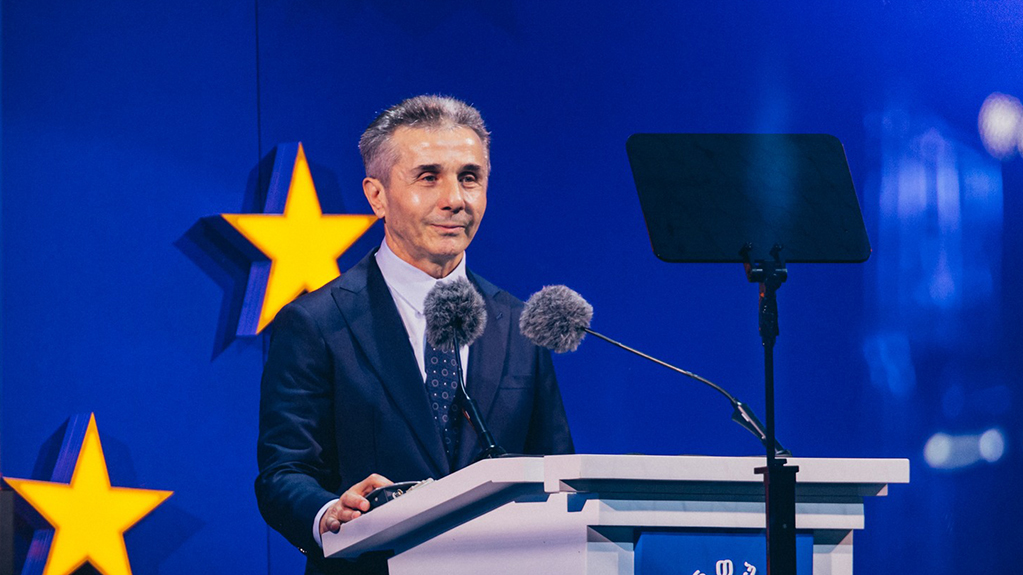Bidzina Ivanishvili, Honorary Chairman of Georgian Dream, spoke at the party's regional election campaign event in Ambrolauri. He addressed the tragedy that occurred in Shovi last year and criticized the oppositional National Movement.
News
"When we talk about Racha, we cannot forget the tragedy that occurred here a year ago. August 3, 2023, will remain an irreparable scar. The natural disaster that struck Shovi claimed lives, including those of children. At such times, we particularly understand the importance of unity - when the entire country stands together, people offer silent support to one another and mourn the tragedy with the dignity that only Georgians can embody.
Unfortunately, I must mention the Collective National Movement, which has once again revealed its true nature. Even when we were struggling to comprehend what had happened, they immediately began to pursue political interests and seek fault with the government over the natural disaster.
These individuals remain outside any public consensus. They thrive on controversy and public division. At such times, any attempt to discuss unity and national interests with them is futile," said Ivanishvili, who, unlike other party leaders, stood behind bulletproof glass at a separate tribune in Ambrolauri.
One year has passed since the tragedy in Shovi on August 3. Of the 33 people who died as a result of the natural disaster, the body of one child has still not been found. The investigation by the Imereti Police Department is being conducted under the signs of the crime specified in Article 116, Part 2 (negligent homicide) and Article 240, Part 2 (violation of safety rules during mining, construction, or other work) of the Criminal Code. Non-governmental organizations have demanded that the investigation be conducted under Articles 128 (abandonment of probation) and 342, but the prosecutor's office did not comply with this request. One year after the tragedy, the prosecutor's office has yet to bring anyone to justice.
The journalistic investigation by Mtis Ambebi revealed that the disaster in Shovi had been anticipated for decades. This was indicated by numerous documents, expert studies, geological maps, and records of natural disasters. Despite this, there was not a single evacuation plan, board, or sign in the resort area. Due to the criminal negligence of the authorities, the dam on the Buba River - which could have saved the vacationers at Sunset and where all the inhabitants of Mamison's cottages perished - was not fully constructed. Following the disaster, the rescue operation was poorly coordinated. There was no protocol, the rescuers lacked the necessary equipment, and the crucial first hours were lost. People were left facing death alone. The rescue operation started several hours late and was halted at dusk on August 3. Throughout the night, no helicopters flew, no rescuers worked, and no drones were used. Proper investigative actions were not conducted, and the bodies were transferred to the morgue without mandatory procedures, which hindered the determination of the exact cause and time of death.
Based on the final conclusion of the National Environment Agency, the establishment of an alarm system could not have prevented the consequences because the natural disaster was of complex origin, developed rapidly, and the distance from its origin to the settlement was short. However,based on the assessment of Swiss experts invited by the government, installing a monitoring system could detect negative developments, (such as rock destabilization), at an early stage. This would allow for timely warnings about impending events and enable the evacuation of people.
Based on the English-language report by the Swiss experts, these assessments were omitted from the Georgian-language report of the National Environment Agency.
One year after the Shovi tragedy, scientists of the Institute of Earth Sciences of Ilia State University presented new materials for natural disaster research. Together with the Georgian scientists, the employees of the universities of Canada, America, England, France, Germany and other countries worked on the research - geologists, geomorphologists, glaciologists, specialists in the extraction and modeling of geological processes from the seismic signal. The findings of the study contradict the final conclusion of the Georgian authorities that the establishment of an alarm system could not prevent the present consequences. "It took not only 8 minutes to bring the destroyed material from the center of the disaster to the inhabited area of Shovi, but 2 whole hours. The rock disintegration process started on August 3, at one o'clock. If there were advance warning systems, this process could have been recorded and then an alarm could have been announced," said Tea Godoladze, director of the National Seismic Monitoring Center.















